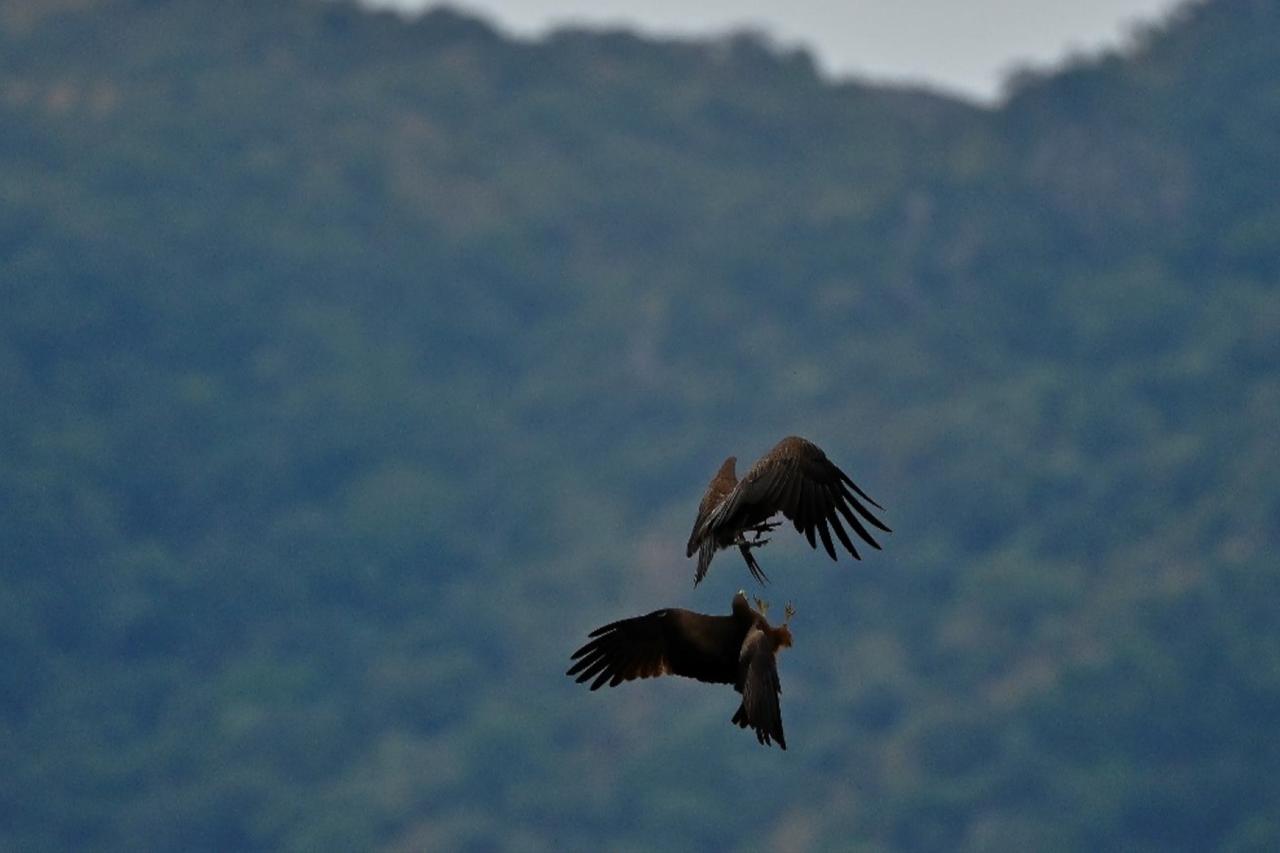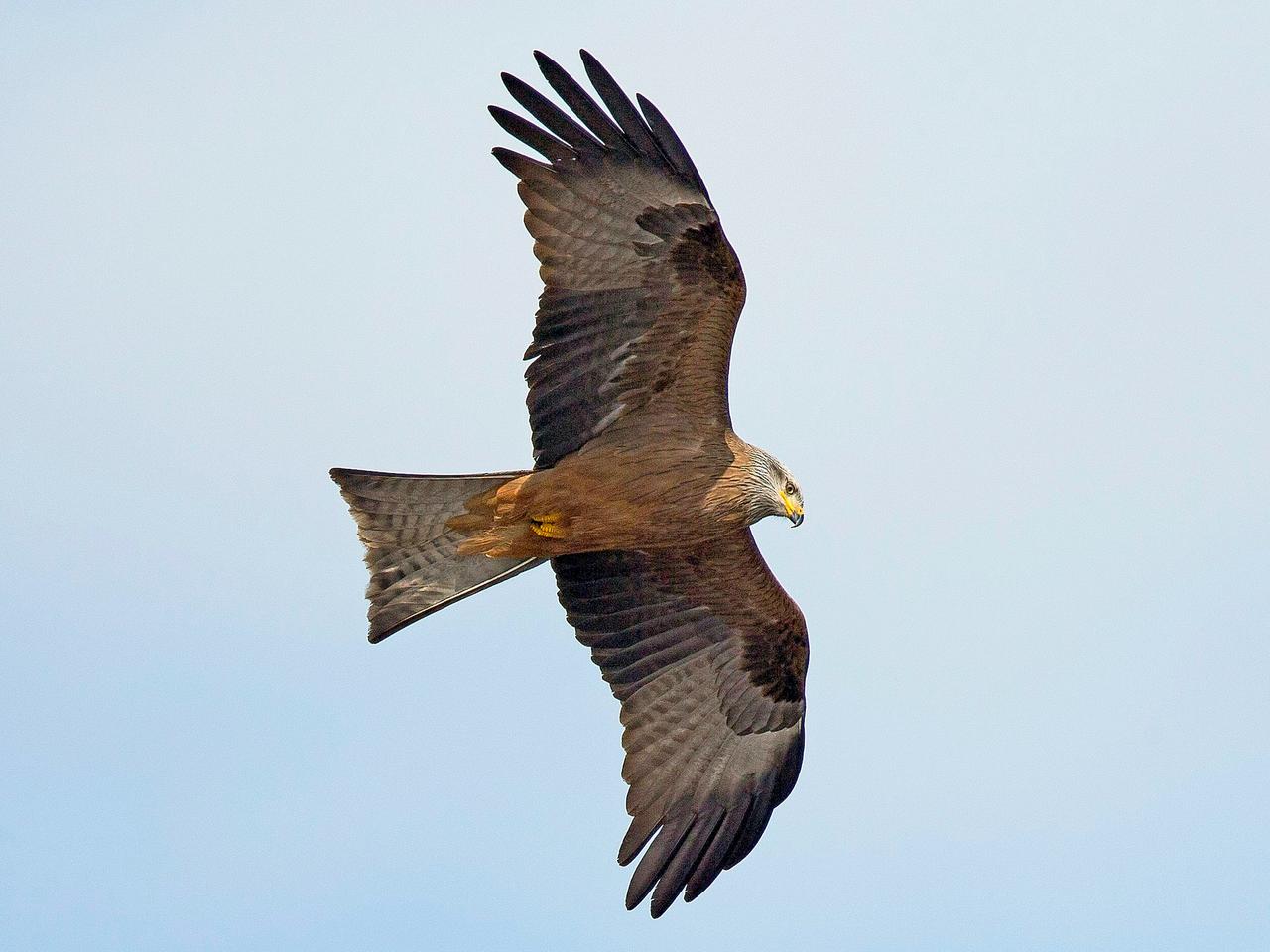
The Darfur region and wide areas of Kordofan are experiencing a sharply accelerating environmental collapse driven by the ongoing conflict since April 2023, amid a dramatic decline in the population of the black kite (locally known as Umm Ketti), as revealed in a report by Independent Arabia.
The report notes that this bird of prey has long played a crucial role in the natural sanitation system across plains and valleys, removing carcasses before they become disease hotspots.
But as the fighting expanded, the environment that once sustained the species was devastated.

According to the report, corpses that once formed the primary food source for Umm Ketti have turned into contaminated hotspots because of rapid decomposition, chemical residues and remnants of ammunition.
Aerial and artillery bombardment has also created hazardous zones indistinguishable to the birds, leading to the death of large numbers of them.
The situation has been worsened by a rise in stray dogs and the collapse of veterinary oversight, further limiting access to safe food sources.
The report cites environmental researcher Somaya bin Awf, who explained that the war has disrupted the birds’ navigation system, which depends on electromagnetic currents.
As a result, many black kites have been forced to alter their natural flight routes toward calmer areas such as the outskirts of Bara, exposing them to gunfire or toxic smoke.
Bin Awf also pointed to the destruction of nests—particularly in El-Fasher—and the shrinking of nesting sites, which have contributed to a marked decline in the species.
She warns that shifts in flight directions caused by shelling push the birds far from water sources, wind currents and food, while poaching increases and bird-monitoring centers remain absent. This, she stresses, has deepened the crisis facing both local and migratory bird species.
The Independent Arabia report highlights observations of a striking behavior in which the black kite carries burning sticks to exploit existing fires and expand them to hunt fleeing prey.
Although some accounts link this behavior to unexplained fires in Darfur and Kordofan, the report notes that scientific confirmation is still lacking, given the possibility of human or climatic causes.
Testimonies from North Darfur, quoted in the report, confirm that Umm Ketti has virtually vanished from the above villages and grazing routes. This has coincided with stronger odors of decomposition and a rise in insects, mosquitoes and stray dogs.
Veterinarian Ali al-Faki tells Independent Arabia that the absence of this natural scavenger accelerates disease cycles and increases the likelihood of rabies and other zoonotic diseases. He adds that the destruction of forests, agricultural belts, and the drying of wetlands pose a direct threat to raptors across the region.
The report notes that these findings align with United Nations data indicating a global 44 percent decline in migratory bird populations due to disrupted magnetic fields and pollution.
According to the report, the war has burned vast tracts of vegetation and erased water points critical for migratory birds. Many species have been killed by shelling, drone strikes, or toxic smoke, while others have been forced to fly at unsafe altitudes, causing them to lose their routes and perish.
The Sudanese black kite, deeply rooted in Darfur’s popular heritage and featured in local stories and proverbs, is now disappearing from the skies—a disappearance that Independent Arabia describes as both an environmental and cultural warning sign.
The report concludes that the growing absence of Umm Ketti mirrors the broader environmental devastation and human suffering inflicted by the war.